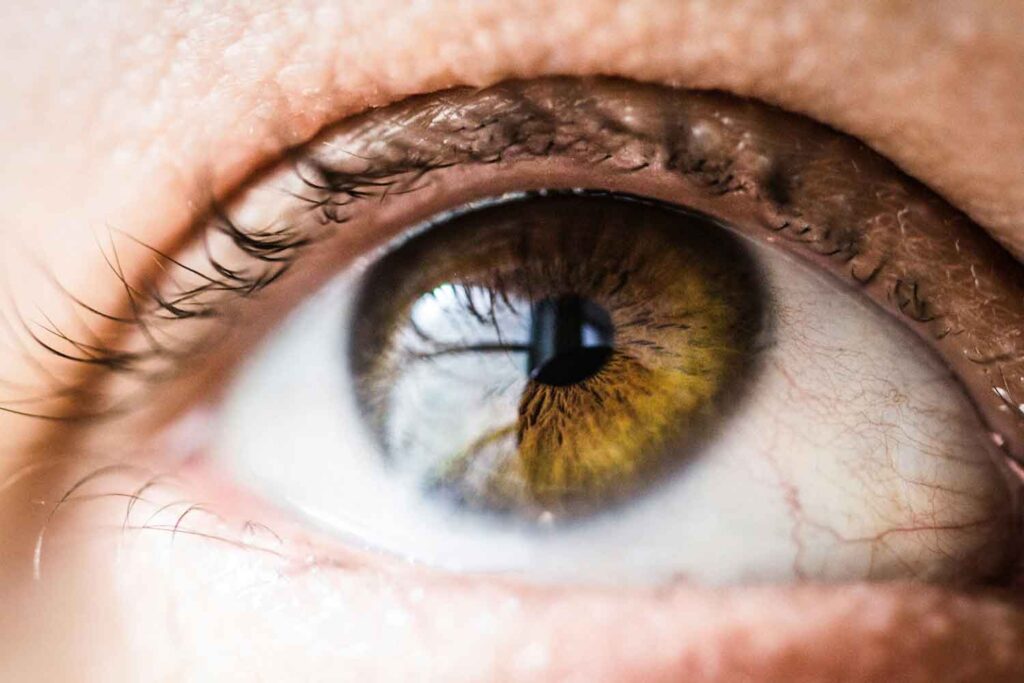Can Weed Cause Sensory Overload?

Most of us know someone unable to handle their kush. They may be freaking out about their surroundings, anxious, or super paranoid. Chances are, this person is experiencing sensory overload. Did they get a bad batch of weed, or can weed actually cause sensory overload? Here’s what we know.
Photo: Pexels
What is Sensory Overload?
Chances are you’ve experienced sensory overload before.
It can happen if the music is too loud when you’re out, you’re in a crowded space, or you get a whiff of someone who wore way too much perfume.
According to Healthline, sensory overload occurs when your five senses give your brain more input than it can handle.
Medical News Today describes sensory overload as the overstimulation of one or more of your senses.
When this happens, Healthline says you may experience:
- Difficulty focusing
- Restlessness
- Discomfort
- Extreme irritability
- Anxiety, stress, or fear about your environment
- High sensitivity to things rubbing on your skin
While sensory overload can happen to anyone, some conditions are associated with this experience.
According to Medical News Today, these conditions include:
- Autism
- Attention-Deficit Hyperactivity Disorder (ADHD)
- Posttraumatic Stress Disorder (PTSD)
- Sensory Processing Disorder (SPD)
- Multiple Sclerosis (MS)
- Chronic Fatigue Syndrome
- Fibromyalgia
- Tourette’s Syndrome
As you may have noticed, weed wasn’t mentioned. So. can weed cause sensory overload?
Can Marijuana Cause Sensory Overload?
It can, according to Dr. Steve Vlach, Family Physician at Ozark MMJ Cards.
“Yes, cannabis can sometimes cause sensory overload. High doses or particular strains might lead to heightened sensory perception, which can be overwhelming or uncomfortable for some individuals. It’s important to be mindful of the type and amount of cannabis used.”
Let’s talk about heightened sensory perception.
Heightened sensory perception is a common side effect of consuming marijuana.
That means, when you’re high, you may notice that colors look brighter, touches on your skin feel different, you’re more sensitive to smells, or your hearing may be affected.
A 2019 study concludes that marijuana heightened the participants’ sensitivity to touch.
In this case, the heightened sensitivity to touch enhanced their sexual experience.
However, there is another side to having a heightened sensory perception.
As Dr.Vlach points out, it can be pretty uncomfortable for some people.
One Reddit user said, “I smoke weed most days. It helps me to relax at night before bed, but I do find that it tends to increase some of my sensory sensitivities. Light touch becomes worse and high-pitched sounds can make my ears feel like they’re bleeding. It’s definitely not bad enough to deter me from using it regularly.”
Another person commented, “ A couple days ago, I had a 5 mg THC edible and I ended up having a bad trip. The weed edible made my sensory issues like 10 times worse and I ended up having a very bad panic attack and then a shutdown while I was high.”
These comments were posted in a forum about autism and weed. More on the two later.
How to Treat Sensory Overload
Unfortunately, there isn’t much you can do besides avoiding whatever gives you sensory overload.
Healthline says, “There are currently not many treatment options for sensory overload. Most “treatment” boils down to avoiding trigger situations and keeping your body as rested and well-hydrated as possible.”
According to Healthline, if you’re in the middle of feeling sensory overload, you can try getting some rest and drinking some water.
If a particular strain of weed gives you sensory overload, our recommendation is that you avoid it.
The good news is that there are so many strains out there that you can experiment with.
When trying a new strain, we recommend starting with a low dose and consuming it slowly over time. That way, you can have a better idea of whether or not that strain is perfect for you. Starting with low doses is especially important for people new to weed since they’re much more likely to get overwhelmed.
If you’re up to it and if it’s legal, consider making your own weed strain.
Can Weed Treat Sensory Overload?
There is discussion among cannabis enthusiasts about whether or not weed could actually treat sensory overload.
As we mentioned, some conditions increase your chances of sensory overload.
One of those conditions is PTSD. We have already explored the impact of weed on PTSD symptoms.
Our research has not proven that weed treats sensory overload in PTSD patients. However, it does reduce symptoms such as anxiety, which is also a symptom of sensory overload.
Another condition that may cause sensory overload is autism.
While there have been some studies claiming that people with autism may benefit from consuming marijuana, it’s not yet an approved way to treat symptoms.
However, people with autism use weed to alleviate their symptoms.
Bridget Dandaraw-Seritt wrote an article for The Mighty documenting her experience with medical marijuana and autism. One of the key symptoms she consumes weed for is sensory overload.
“I’m still very autistic. I absolutely enjoy many of the traits bestowed upon me by autism, but I am extremely happy for sensory overload relief. Easing just that one area has allowed my brain to process infinitely more information than it did before.”
On Reddit, some people commented that weed does help with their sensory overload.
In an autism thread, someone posed a question about weed and sensory issues; here is what someone said:
“It depends on the person! My sensory issues tend to improve when I’m high…no idea why. But it’s the only way I can tolerate physical touch. It’s really helpful if I’m having a meltdown, tends to stop it completely once it kicks in.”
However, we previously mentioned that someone commented that it worsened their sensory issues.
Takeaway
Can weed cause sensory overload? Yes. It depends on the individual, the amount of weed used, and the strain. There is also anecdotal evidence that weed may help people with sensory issues. The takeaway is that it depends on the person, and we look forward to more research.












